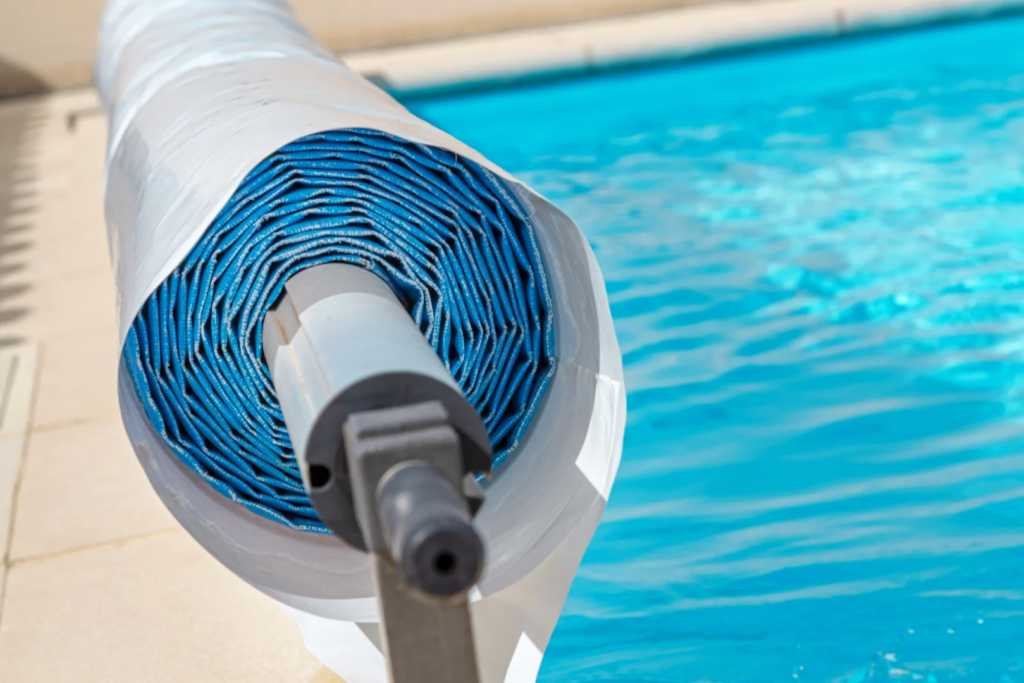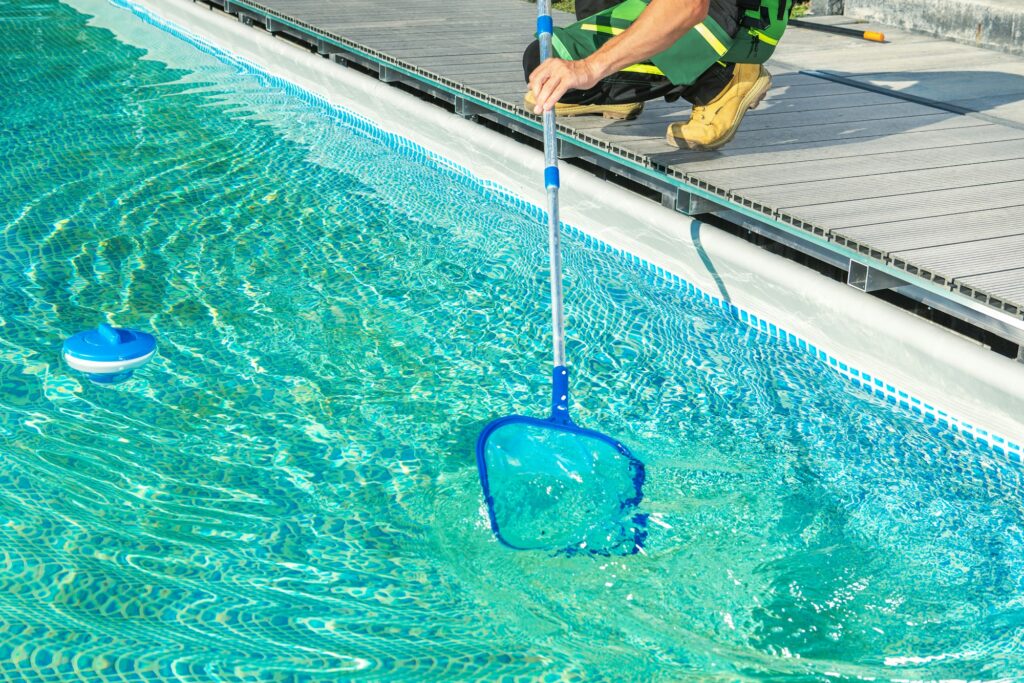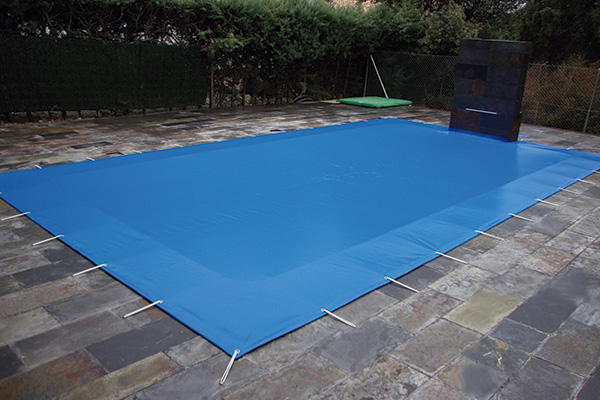Need help winterizing your pool?
Visit our store in JUJUJU and find everything you need to protect your pool this winter.
Prepare Your Pool for Winter and Avoid Costly Surprises

With the arrival of winter, it is essential to prepare your pool properly to avoid problems such as frozen pipes, contaminated water or equipment damage. Winterizing your pool not only protects its facilities, but also facilitates its maintenance and reduces costs when spring arrives.
In this guide, we explain the essential steps to keep your pool in optimal condition during the cold months.
Why is it important to winterize your pool?

Winterizing your pool properly is not only a necessary task, but an investment that will save you time and money in the future. Low temperatures can cause serious problems in the plumbing and filtration system, especially if the water freezes. By preparing the pool for winter, you protect both its structure and equipment, avoiding costly repairs when spring arrives.
In addition, by maintaining an adequate level of chemicals and proper cleaning before closing, you will prevent the water from deteriorating. This makes the reopening process much easier and will allow you to enjoy a clean pool in optimal conditions when the good weather returns.
These are some of the main benefits of winterizing your pool:
- You protect the filtration system and pipes from freezing.
- You keep the water treated, which reduces the need for extensive spring cleaning.
- You avoid costly damage to the pool structure and equipment.
- You save time in the reopening process.
Winterizing your pool ensures that you can enjoy it hassle-free next season, avoiding costly problems and keeping everything in perfect condition.
Deep cleaning before closing

Antes de cerrar tu piscina para el invierno, es fundamental realizar una limpieza profunda para asegurarte de que el agua se mantenga en buen estado durante los meses fríos. Dejar residuos como hojas, ramitas o insectos en la piscina puede generar manchas, acumulación de suciedad y facilitar el crecimiento de algas, complicando la reapertura en primavera. Una buena limpieza previa te ahorrará mucho tiempo y esfuerzo más adelante.
Steps for deep cleaning:
- Remove floating debris: Use a net to remove leaves, insects and other debris on the surface of the water.
- Brush the walls and bottom: Brush all surfaces of the pool to remove adhering dirt and prevent algae growth.
- Vacuum the bottom of the pool: Use a manual or automatic pool cleaner to ensure that no debris remains on the bottom.
- Clean skimmers and filters: Make sure skimmers and filters are completely clean and free of clogs to avoid problems during the winter.
- Check water levels: If necessary, adjust the water level to avoid damage to the walls or equipment during the winter.
By following these steps, you will ensure that your pool is ready to be closed without any debris that could affect its condition during the winter.
Adequate chemical balance prior to closure

One of the most important steps when winterizing your pool is to make sure the water chemistry balance is at optimum levels before closing. This will prevent problems such as corrosion, algae growth or water discoloration during the winter.
Adjusting pH and alkalinity
Before closing the pool, adjust the pH levels to between 7.2 and 7.6, and make sure the alkalinity is within the recommended ranges (80-120 ppm). A balanced pH protects pool surfaces and equipment, preventing scale formation or damage.
Adding winter chemicals
It is advisable to use specific winter chemicals, such as algaecides and winterizing products. These products prevent the growth of algae and bacteria during the months of inactivity, keeping the water in better condition.
Is it necessary to drain the pool?
Depending on the climate in your area, you might consider draining some of the water to prevent it from freezing and damaging the pool walls or filtration system. However, it is not recommended to drain it completely, as the water also acts as a protective barrier against the weight of possible frost or snow.
Maintaining the proper chemical balance is essential to protect your pool during the winter and make it easier to reopen in the spring. By adjusting the pH and using specific winter products, you will be avoiding major problems and ensuring that the water remains in good condition for the next use.
Protecting equipment and facilities
During the winterization process, it is not only important to keep the water in good condition, but also to protect your pool equipment and facilities.Low temperatures can seriously damage filtration systems and plumbing if proper precautions are not taken.
Draining the filtration system and pipes
To prevent water in the pipes and filtration system from freezing and causing ruptures, it is essential to completely drain all lines. Be sure to empty the pump, filter, skimmers and return lines so that no trapped water remains that can expand with frost.
Disconnecting and storing the equipment
Disconnect the pump, filter and other equipment that can be removed, and store them in a dry place protected from the cold. This will prevent them from deteriorating over the winter and ensure that they will function properly when you reopen the pool.
Protect skimmers and nozzles
It is advisable to use winter plugs to seal skimmers and nozzles, which prevents water from entering the pipes and prevents the risk of freezing.
Taking steps to protect your pool’s equipment and facilities during the winter is key to avoiding costly damage and ensuring that everything works properly when it’s time to reopen your pool. By following these steps, you’ll keep your pool in top condition and extend the life of the equipment.
Is it necessary to use a pool cover in winter?

Using a pool cover during the winter is highly recommended to protect your pool from the elements and keep it in good condition. Although it may seem like an optional accessory, a pool cover offers many benefits that will save you time and money in the long run.
Advantages of using a pool cover
- Debris protection: Covers prevent leaves, dust and other debris from entering the water, reducing the need for constant cleaning and preventing water contamination.
- Evaporation reduction: Even if the pool is not used in winter, water can still evaporate, which affects the chemical balance. A cover significantly reduces evaporation, keeping the water in better condition.
- Additional safety: In homes with children or pets, safety covers offer an extra layer of protection, preventing accidents during the months of inactivity.
Types of Covers Recommended for Winter
- Safety Covers: Designed to support weight, these covers provide maximum protection for both the pool and to prevent accidents.
- Winter Covers: Specifically made to withstand harsh weather conditions, these thick and durable covers are ideal for cold climates.
A cover protects your pool and makes maintenance easier, ensuring it’s ready when the season returns.da de uso.
Final Inspection and Winter Maintenance
Even if your pool is winterized and covered, it’s important to perform periodic checks to ensure everything remains in order during the colder months. Basic maintenance will help prevent unexpected issues and ensure your pool is ready for reopening in the spring.
Periodic Inspections
Make sure to inspect the pool cover every few weeks to ensure it is properly in place and free of damage. It’s also advisable to check the surrounding area for any water or ice buildup that could affect the structure or equipment.
Basic Winter Maintenance
Keep the pool area free of leaves and debris to prevent accumulation around the cover. If you live in a region with low temperatures, ensure that ice does not form on exposed equipment or the pool surface, as this could cause damage.
Performing periodic inspections and basic maintenance during the winter ensures that your pool remains in good condition and ready for use when spring arrives, preventing unpleasant surprises and costly repairs.
Properly winterizing your pool is essential to protect it during the colder months and prevent issues caused by low temperatures. By following key steps such as cleaning, chemical balancing, equipment protection, and using a suitable cover, you can ensure your pool remains in perfect condition until spring arrives.
Not only will you avoid costly repairs, but you’ll also save time when reopening it, with clean water and fully functional equipment. The key is to prepare your pool properly so it’s ready for hassle-free use when warm weather returns.



